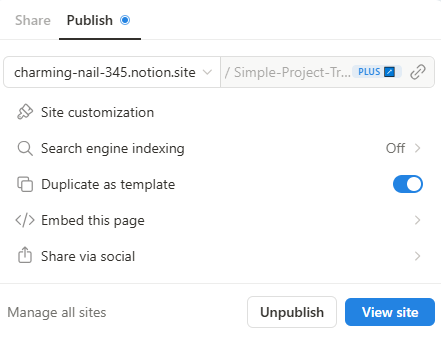💡Intro To Notion
Notion has exploded in popularity as an all-in-one workspace. But beyond planning your life and business, it can also help you build and sell digital products.
From goal trackers to business dashboards, creators everywhere are turning simple Notion templates into profitable, sellable assets, and the best part? You don’t need to be a tech expert to get started.

In this guide, you’ll learn how to:
Understand what makes a Notion template valuable
Create a beginner-friendly, sellable template
Package, market, and monetize it step by step

🧠 What Is Notion (and Why Creators Love It)?
Notion is a flexible productivity tool that combines notes, databases, calendars, and tasks in one place. It’s used by individuals and teams to stay organized, track goals, and manage projects.
But it’s also become a goldmine for creators, this is because anything you build inside Notion can be turned into a template that others can duplicate and use.
📌 Examples of popular paid Notion templates:
Daily planners
Goal-setting dashboards
Business launch checklists
Content calendars
Finance trackers
Client portals
🎨 Step 1: Choose a Template Idea That Solves a Problem
To sell a Notion template, start by identifying a niche pain point.
Ask yourself:
What do people waste time on?
What system do you already use that others might want?
Can you turn your own productivity setup into a plug-and-play resource?
✅ Beginner-friendly ideas:
“Weekly Content Planner for Creators”
“Freelancer Project Tracker”
“Digital Product Launch Checklist”
“Simple Habit Tracker”
🧱 Step 2: Build Your Template Inside Notion
Once you have your idea:
- Open Notion (free account is enough)
Create a clean, functional layout
Use pages, toggles, databases, and checkboxes to make it interactive
Add helpful instructions inside the template so users know how to use it
💡 Tip: Look at popular templates on Notion’s template gallery or marketplaces like Gumroad or Easlo for inspiration.
📦 Step 3: Make It Duplicable and Ready to Share
Before you can sell it, you need to:
Click “Share” on the top right of your Notion page
Turn on “Share to web”
Enable “Allow duplicate as template”
Copy the public link as this will be what buyers receive after purchase

💰 Step 4: Sell It Using a No-Code Platform
Use platforms that let you sell digital goods and deliver the Notion link:
🛒 Popular no-code selling platforms:
Gumroad (free to start): Upload a product image, description, and your Notion link
Lemon Squeezy: More polished UX, great for paid templates
Payhip: Simple and good for digital goods + discount codes
Ko-fi: For creators who want a donation or product storefront
✍️ Step 5: Write a Simple Product Page Description
When selling your template, explain:
Who it’s for
What problem it solves
What’s inside (features)
How it saves time or improves results
✅ Example:
“A simple content calendar built inside Notion to help solo creators plan and track their weekly posts across platforms — in one clean dashboard.”
📣 Step 6: Promote Your Template Smartly (Even Without an Audience)
You don’t need a big following, you just need a clear offer and the right niche.
Promotion ideas:
Tweet about it in a Notion/productivity thread
Share it in Reddit communities (like r/Notion or r/SideHustle)
Post a how-to video or walkthrough on TikTok or YouTube
Submit to Notion template directories
Add it to your Link in Bio or website
Bundle it as a freebie in exchange for emails
✅ Wrap-Up:
You don’t need to be a designer or developer to create a sellable digital product. With Notion and a clear idea, you can build and sell a valuable, duplicable asset that people will actually pay for.
And since Notion is free to use, it’s one of the lowest-risk, highest-upside ways to start earning as a digital creator in 2025.
👉 Coming Soon
 A free Notion Product Launch Checklist to follow this guide step by step.
A free Notion Product Launch Checklist to follow this guide step by step.